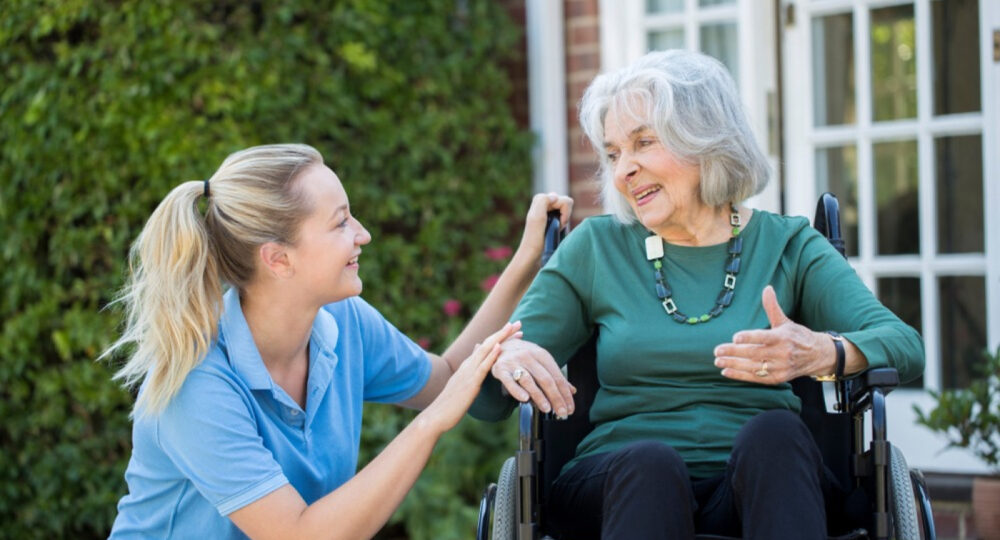
The Future of Personalized Home Care Services in Northern Kentucky
The landscape of caregiving is evolving rapidly. With advances in technology, changes in healthcare delivery, and growing demand for individualized care, families are rethinking how to best support their loved ones. Nowhere is this transformation more visible than in Northern Kentucky, where the need for compassionate, customized care solutions is reshaping community health. Organizations like Homewatch CareGivers of NorthernKentucky are leading the charge by offering flexible, person-centered home care that aligns with modern expectations of dignity, choice, and trust.
Why Personalization Matters in Home Care
No two individuals share the same health journey, personality, or preferences. Traditional care models, which rely on standardized routines, often fail to address the nuances of personal comfort and emotional connection. Personalized care shifts the focus from “what” needs to be done to “who” the person is.
In Northern Kentucky, where many families value close-knit relationships and multigenerational homes, personalized home care resonates deeply. It ensures that every client’s unique story—whether tied to cultural background, lifestyle, or medical condition—is respected and reflected in their care plan.
Personalized home care recognizes that the path to well-being is not one-size-fits-all. It balances professional expertise with empathy, allowing caregivers to adapt daily routines, communication styles, and emotional support to fit each individual’s evolving needs.
The Changing Demographics Driving Personalized Care
Northern Kentucky, like much of the nation, is experiencing an aging population. According to the U.S. Census Bureau, the region’s senior population has grown significantly over the past decade, creating an urgent need for long-term and specialized home support.
However, this demographic shift also reveals changing expectations. Today’s older adults want to remain independent, active, and connected to their communities. Families are no longer looking only for clinical support—they’re seeking care that enhances life quality, preserves autonomy, and reflects personal values.
This demand for meaningful, personalized experiences has pushed caregiving providers to innovate and expand their approach beyond conventional care models.
Building Individualized Care Plans: A Collaborative Approach
Effective personalization begins with collaboration. Caregivers work closely with clients and families to design care plans that align with medical requirements, personal goals, and household routines.
At Homewatch CareGivers of Northern Kentucky, the process starts with a detailed assessment covering physical health, cognitive abilities, dietary needs, and emotional wellness. But the evaluation doesn’t stop there—it also includes lifestyle factors like favorite activities, preferred mealtimes, and social engagement levels.
This holistic assessment ensures care plans feel natural rather than imposed. Over time, regular reviews and feedback sessions allow for dynamic adjustments, ensuring that care evolves as the client’s life does.
Integrating Technology with the Human Touch
The future of home care lies in the balance between human empathy and technological innovation. Digital tools such as care management apps, wearable health trackers, and telehealth platforms are revolutionizing how caregivers monitor well-being and communicate with families.
For instance, real-time reporting allows family members to receive updates about their loved one’s care activities, medication schedules, or mood changes—creating transparency and peace of mind. Meanwhile, caregivers can use data-driven insights to anticipate needs and make timely adjustments to care routines.
However, the true power of technology emerges only when paired with compassion. Personalized care remains rooted in human relationships, where emotional intelligence complements digital precision.
The Role of Empathy and Emotional Intelligence
While medical training and technical skills are vital, empathy remains the foundation of effective caregiving. Emotional intelligence enables caregivers to interpret subtle cues—such as changes in mood, appetite, or energy—and respond appropriately.
In a personalized care model, empathy guides every interaction. It ensures that seniors feel heard, respected, and valued. Whether it’s listening to stories from the past, preparing a favorite meal, or providing quiet companionship, empathy transforms caregiving into a relationship built on mutual respect.
This emotional connection is particularly important for individuals managing memory-related conditions or recovering from illness, where trust and consistency significantly influence health outcomes.
Empowering Clients Through Independence
A hallmark of personalized home care is promoting independence, not dependence. Caregivers play a supportive role that empowers clients to remain active in their daily lives. From helping with mobility exercises to encouraging social activities, personalized support enables individuals to retain control and confidence.
For Northern Kentucky families, this approach aligns with cultural values of self-sufficiency and community pride. Seniors who maintain autonomy report higher satisfaction, reduced stress, and better mental health. Personalized care nurtures this independence by meeting clients where they are—both physically and emotionally.
Adapting to Complex Health Conditions
As chronic illnesses become more prevalent, the need for customized care strategies grows. Conditions like diabetes, heart disease, and dementia require nuanced attention that accounts for both medical and lifestyle factors.
Professional caregivers trained in specialized care can tailor routines to support medication management, nutrition, and physical activity. This adaptability reduces risks and enhances recovery outcomes.
In Northern Kentucky, where access to large medical facilities may vary depending on location, in-home care plays an essential role in bridging gaps between healthcare appointments. Personalized plans ensure that medical instructions are implemented accurately while maintaining comfort at home.
Family Involvement and Communication
Successful personalized care is a team effort that includes families as active participants. Regular communication builds transparency, reduces anxiety, and ensures alignment on goals.
Families often provide invaluable insights into their loved one’s personality, habits, and preferences. Caregivers use this information to refine their approach, creating an atmosphere that feels familiar and nurturing. Homewatch CareGivers emphasizes collaboration through scheduled care reviews, real-time progress reports, and open dialogue.
This sense of partnership turns caregiving into a shared mission rather than a one-sided service.
The Future Workforce: Skilled, Compassionate, and Tech-Savvy
As the home care industry grows, so does the demand for caregivers who combine empathy with advanced skills. Future caregivers will be equipped not only with medical and technical expertise but also with emotional intelligence and cultural awareness.
Ongoing training in communication, technology, and specialized care ensures that professionals remain adaptable in an ever-changing landscape. In Northern Kentucky, investment in caregiver education directly contributes to stronger, more resilient communities.
Community-Centered Care: A Local Vision for the Future
Personalized care thrives when it reflects local identity. Northern Kentucky’s community spirit—marked by close connections and mutual support—provides the ideal foundation for home care innovation. By hiring local caregivers and collaborating with regional healthcare providers, Homewatch CareGivers strengthens community well-being while preserving cultural continuity.
This approach ensures that seniors are not just cared for but also remain rooted in the neighborhoods and traditions they cherish. As personalized home care continues to evolve, it is shaping a future where compassion, collaboration, and technology coexist seamlessly to enhance quality of life.
FAQs
Q: What makes personalized home care different from traditional care?
A: Personalized home care tailors services to an individual’s unique health, emotional, and lifestyle needs rather than applying a uniform routine to all clients.
Q: How do caregivers personalize care for each client?
A: They conduct detailed assessments, listen to client and family feedback, and continuously adjust care plans to reflect changing needs and preferences.
Q: Can personalized care help with chronic illnesses?
A: Yes. Individualized plans for diet, medication, and exercise improve management of chronic conditions and enhance comfort and recovery at home.
Q: How is technology used in modern home care?
A: Tools like digital health tracking, care apps, and telehealth platforms improve communication, transparency, and response time between caregivers and families.
Q: What does the future of personalized caregiving look like?
A: It combines advanced training, empathy, and technology to create care that is adaptable, emotionally intelligent, and rooted in community connection.





